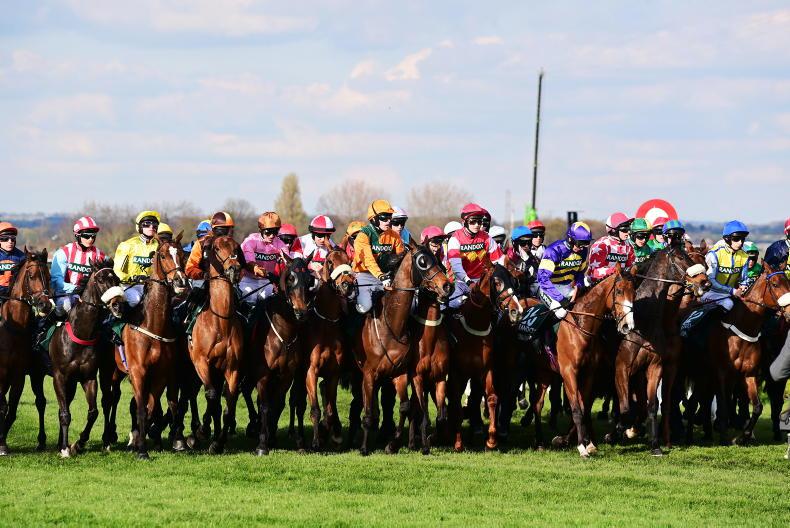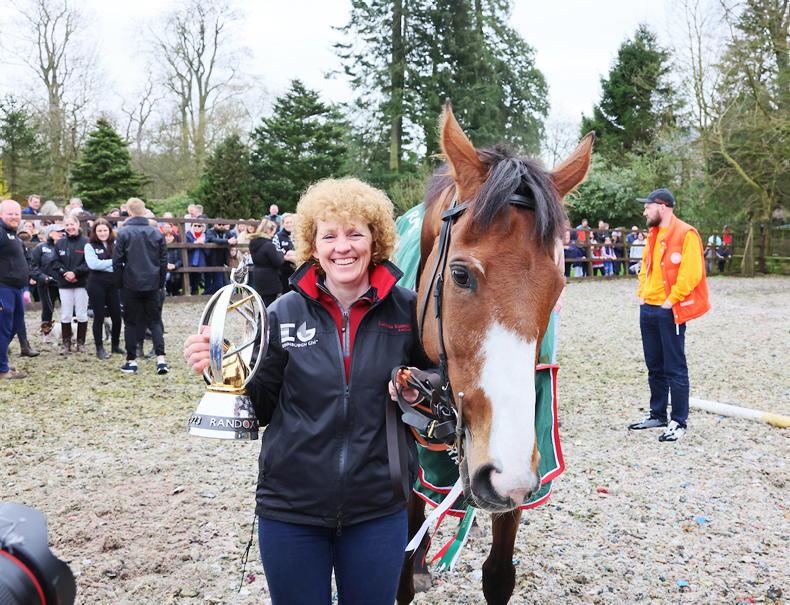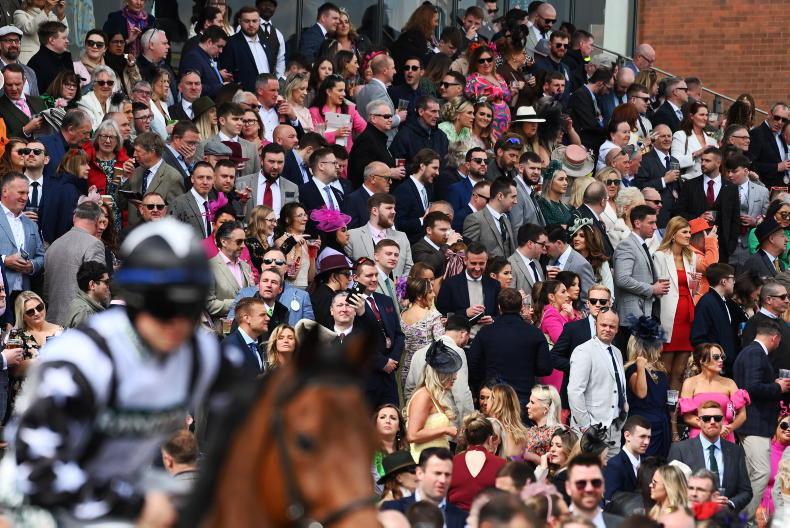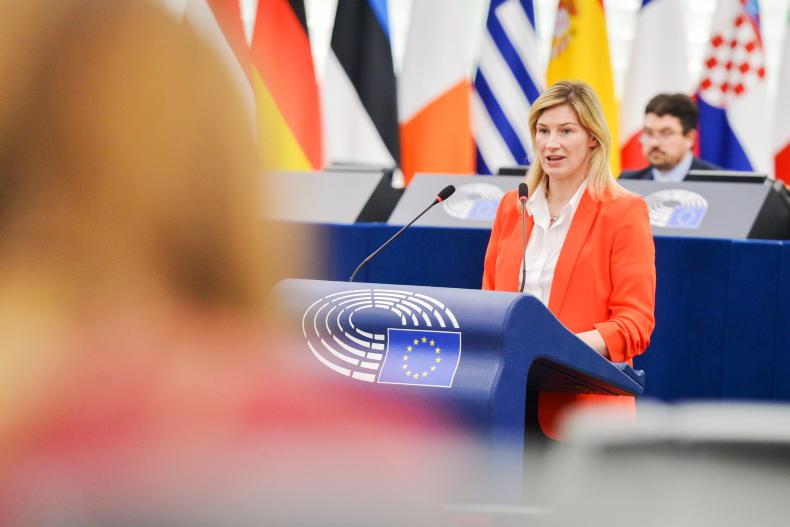ONCE upon a time, in an easier kind of world, the Horse of the Year was a huge TV attraction for horse lovers. It showed horses being used, trained to compete, in many different activities. Obedient beasts. Its conclusion brought many of the winners together for the reading of the poem – The Ode to the Horse. It contains the lines.
“He serves without servility; he has
fought without enmity. There is
nothing so powerful, nothing less
violent, there is nothing so quick,
nothing more patient.
England’s past has been borne on
his back. All our history is his
industry…

England’s past has been borne on his back – oh dear, that doesn’t sound good – should we get up in arms?
The use of the horse for sport has been a big media debate this week.
Last Saturday’s Grand National was disrupted by animal rights activists invading the track at Aintree and delaying the start of the race.
Unfortunately and regrettably, though perhaps not for some of those protesting, one horse was killed instantly in a fall at the first fence. His trainer believes the delay led to Hill Sixteen becoming upset and contributed to the fall, the first in his career.
Corach Rambler’s win for his connections should have been a good news story but it was superseded on the BBC News coverage by the pre-race disruption.
Their take was that the antics “threw the race into disarray”; Aintree’s take, and the one experienced by those at the track, was relayed by Dickon White, North-West Regional Director for Jockey Club Racecourses, who said: “There was a short delay to the start time for the Grand National, due to the reckless actions of a small number of individuals.

“The Police and our security teams dealt with the incident swiftly and decisively.” However, the ‘debate’ on whether the National should cease to be, and more importantly, on horses racing, continued with the spokespersons for group Animal Rising getting a great deal of airtime.
When challenged, most notably in exchanges with Kevin Blake, they were found wanting, offering airy fairy alternatives if racing was banned.
You would love to see each one in the dock and asked to show evidence of how they have directly helped animals. How many horses have you been up close to, how many have you looked after?
It seems to be against the grain to most to accept the relationship between man and horse, that the horse does serve us.
Indeed, most animals happily serve us. Or would they wish to inquire if a guide dog actually wants to be a guide dog? Is it exploitation?
Or course, the dog is not likely to be injured in his work but how many pet dogs get run over in farmyards all year – probably more than the 0.21% of horses on the track. It happens.
Common sense
In the face of Kevin Blake’s common sense questions, the Animal Rising’s Ben Newman on BBC5Live on Monday could offer little.
The only alternative offered to not racing thoroughbreds (they are called the thoroughbred racehorse) was “They can be returned to sanctuaries”. If this is supposed to be a means of incorporating over 50,000 half-tonne galloping animals into modern society, it showed how out of touch the majority of the protestors were who spoke on the radio.
And who pays for their feed in winter when there is no grass? Who calls or pays for a vet when they inevitably hurt themselves running wild?
Might we not suggest that more than the 0.2% of horses who die on the race track would suffer a worse fate if running wild, suffering injuries and no one to make their end of life quick and painless?
Kevin was too polite, He avoided the obvious scenario that the necessary alternative to not using the breed for its born purpose would be to dispose of the majority of those in training.
And if the Grand National is only the beginning of ‘free the horses’, what of riding horses, those in eventing and show jumping. Are we exploiting these too for our pleasure? Each has to be ‘broken’ and trained to accept a bit and saddle, all of which will cause some degree of discomfort and distress at the time.
Corach Rambler was a heroic winner for great, appreciative connections. And Lucinda Russell and Peter Scu know the heartbreak of keeping horses – their first star Brindisi Breeze, on his holidays in a field, broke out on to a road and was killed.
Their National winner One For Arthur had a lovely retirement – but got colic and died.
Minority groups
We are in an era of social media influence and media channels allowing more minority groups airtime, often with their opinions unchallenged. Even across the political arena, we have seen untruths grow legs and little accountability, even for the elected government of the day.
One worry racing faces in the popularity stakes is that so many of the ‘public’ faces who might make front page news are gone or soon to be. A.P. McCoy, Ruby Walsh, Frankie will retire in six months. Rachael Blackmore’s career is not likely to be as long as theirs. Good news headlines are always a plus.
There are fewer jockeys now who are recognisable. Take a glance through Saturday’s Grand National field of riders. Remove Davy Russell and across both countries, it was mainly a crop of new young riders. Very few would be recognisable to anyone outside the sport.
On the other side, the ‘antis’ are connecting with famous names to gain further traction.
Changes
What changes could be made? Perhaps cutting the National field to 35 would be a good thing. The fence modifications have worked, the delay surely contributed to the casualties at the early stages.
Only three actually fell over the first two fences (five unseated) and Davy Russell said on the Luck on Sunday show that the fence modifications meant that Galvin’s error did not cause him to fall as it would likely have done back when the fences were solid. And smaller fences are not a solution - Dark Raven was fatally injured in a hurdle fall.
However, the loose horses were a worry and it did not look good. Cloudy Glen took out Lifetime Ambition in dramatic fashion at Valentines - the run-off areas were of little use when the horses decided to run in front of the field on the inner.
Both Galvin and Recite A Prayer received injuries running loose. The suggestion of having outriders looks difficult to incorporate if loose horses are up at the front of the field.
Perhaps with the National complete for another year, there will be less media interest and protestors given less access but British racing has another problem in avoiding any own goals and one that it didn’t really need.


 This is a subscriber-only article
This is a subscriber-only article
 It looks like you're browsing in private mode
It looks like you're browsing in private mode










SHARING OPTIONS: